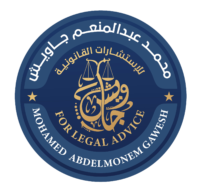"Protection against Criminal Offenses in Cosmetic Surgeries"
Before delving into the details of the topic, it is necessary to first define the concept of cosmetic surgeries. Cosmetic surgeries are a form of medical art that involves procedures of excision, repair, transplantation, and other methods that all rely on incisions, sutures, and stitching. However, cosmetic procedures do not always rely on surgical interventions alone; they can also be achieved through techniques such as injections. These injections may serve cosmetic purposes even though they do not involve surgical procedures themselves.
It is evident from this that cosmetic procedures involve modifying or altering certain body parts or features. In cases where such modifications or corrections result in adverse outcomes leading to disfigurement or defects, criminal liability can be imposed on the physician. Some legislations, such as the Saudi Arabian law, require retribution (Al Qisas) in cases where the disfigurement or defect is intentional. However, if the act is unintentional, there is usually no punishment for actions done without intent, as is the case in most legislations. However, the focal point of our discussion here is the cosmetic surgeries or procedures that may result in severe disfigurement or unintended defects, contrary to the intended purpose of the surgery. At this point, the question arises: Is the physician held accountable without considering any other considerations? We believe that each case should be examined according to the health condition of the individual seeking or desiring the surgery and the extent of the physician’s responsibility for the error. These considerations, of course, vary from one case to another, whether the error is a significant professional mistake, a foreseeable error, or not fundamentally related to professional errors. However, the presumed reality is that medical errors in cosmetic surgeries should not be equated with other medical errors in traditional fields. Especially those that are unrelated to treatment, they fall under the category of luxury and the desire for aesthetic perfection. We would like to point out that some courts have established in their rulings on medical liability cases that obtaining consent by a cosmetic surgeon from their patient does not exempt them from responsibility, even if the patient’s consent includes awareness of the potential complications of the intended procedure.
On the other hand, we see the necessity of balancing the risks of cosmetic surgery with the desired outcome. The goal behind seeking a cosmetic surgeon is to add a touch of beauty, and therefore, if the risks outweigh the benefits, the surgeon should refrain from performing the procedure and advise the patient to reconsider due to its lack of effectiveness or potential danger. The doctor is obligated, in the absence of risks, to explicitly inform the patient of all dimensions that may result, including the possibility of unsatisfactory results, in order to provide the patient with the choice of proceeding with the surgery or not.
Based on the texts and legislation, we support the notion that the doctor’s responsibility is completely absolved if the individual willingly accepts to undergo the procedure, despite being informed and aware of the possibility of not achieving the desired outcome. The surgeon must adhere to the technical and procedural principles of the surgical art and exercise utmost care in preserving the patient’s condition during the operation. Finally, we propose legislation that mandates mandatory medical liability insurance, which requires hospitals, clinics, and licensed doctors to insure themselves against their errors and responsibilities towards patients. In general, we advise everyone not to consider undergoing any surgical procedure for cosmetic purposes unless it is for therapeutic reasons or absolute necessity. It is important not to be lenient when it comes to performing surgeries that may have risks, effects, or future side effects, some of which may be temporary while others are long-lasting. We ask Allah for well-being and safety for everyone.
By Lawyer
Mohamed Gaweesh

